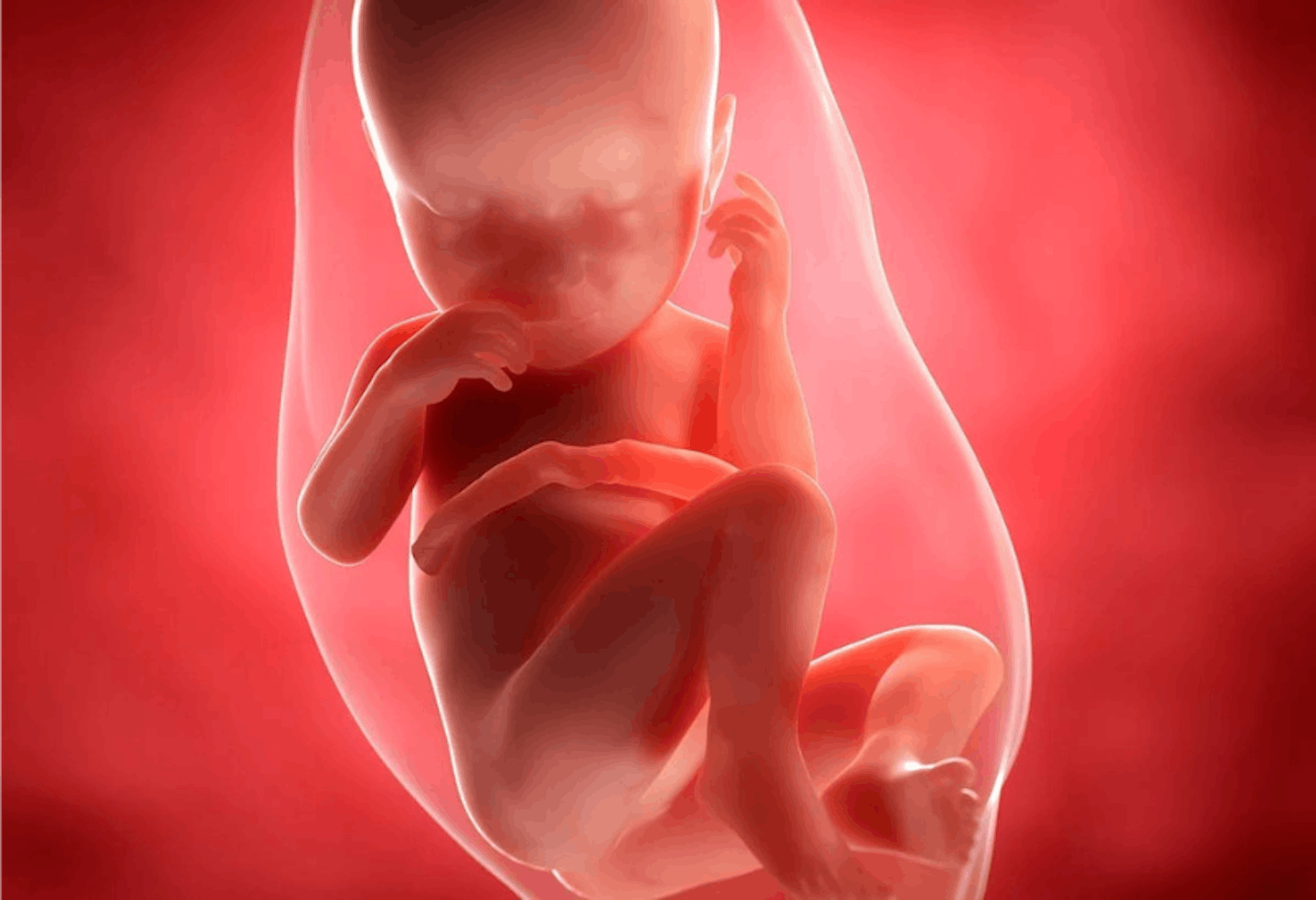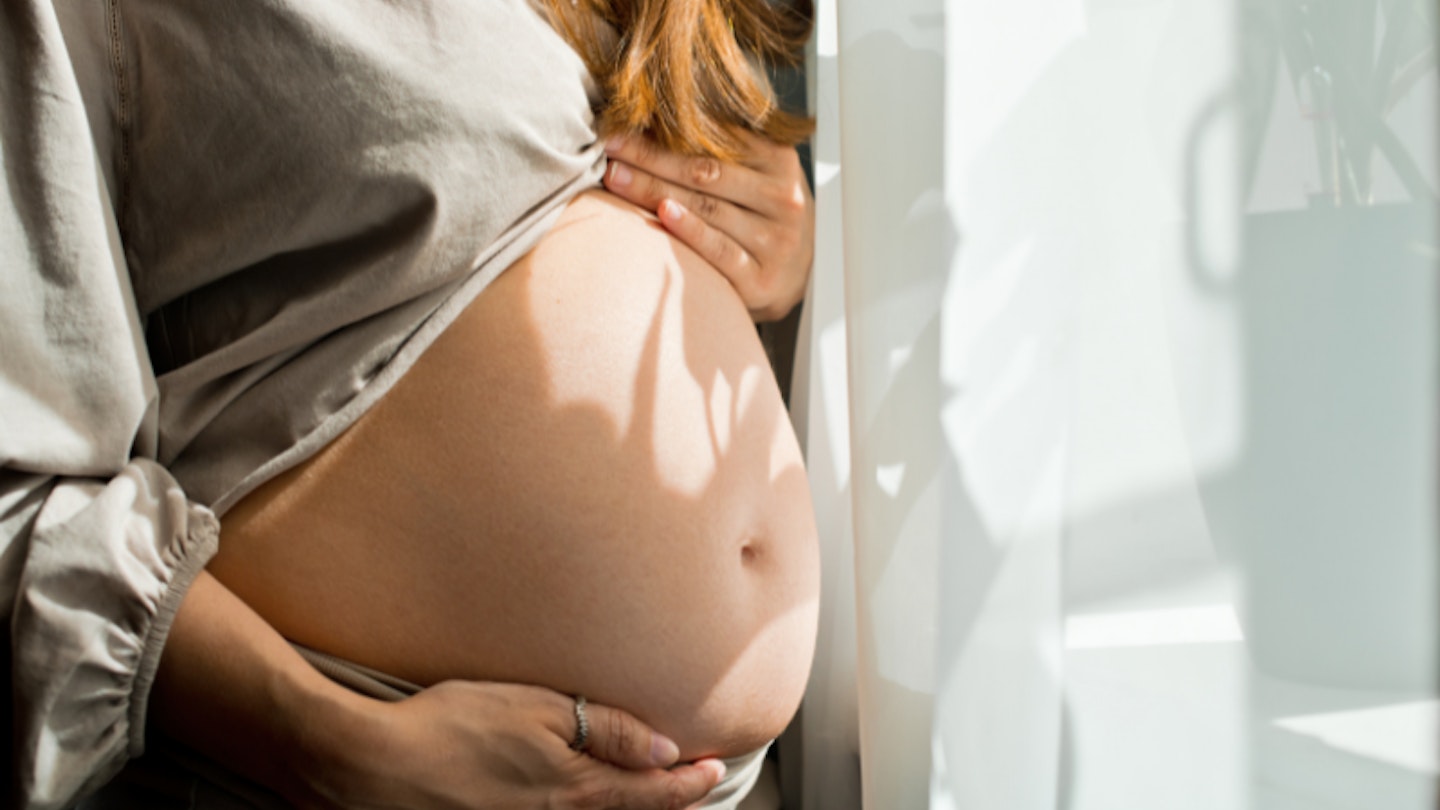At thirty-seven weeks pregnant, you’re getting closer than ever to your baby’s arrival, and their body is still maturing. Find out everything you need to know about your baby, your body and any symptoms you might experience at 37 weeks pregnant.
How big is my baby at 37 weeks?
This week, your baby is bigger than ever at the size of a whole romaine lettuce. They weigh around six and a half pounds, though if he’s a boy, he’ll likely weigh even more than this. They are also getting tall, measuring over 19 inches from top to toe.

What’s my baby doing at 37 weeks?
Although your due date is close now, your baby still isn’t considered full term for another two weeks. If they are born now, they will still be considered early term. The next two weeks in your womb (if they decide to stay in there till then) will see their brain and lungs reach full maturity. They will keep gaining around half a pound a week until the birth.
They will still be practising for life outside the womb, rehearsing by inhaling and exhaling amniotic fluid, sucking their thumb, moving from side to side and even blinking. Also the lanugo hair which covered their body since around week 16 is now mostly gone. Interestingly, once they are born, their head will be the same circumference as their chest.
Ever wondered what your baby will look like once they are born? Surprisingly, your baby may look quite different to both you and your partner. If they are born now and have different colour hair to both of you, don’t fret! It is perfectly normal for dark-haired couples to have a baby emerge with blonde or red hair, or fair-haired parents to have a little one with dark hair. Alternatively, your baby could have no hair, just a fine peachy down.

Common symptoms to look out for at 37 weeks Pregnant:
•Not gaining weight
Many women don’t gain any weight at all at this stage, which can be quite a change from the pound a week of gained weight you’ve come to expect from the third trimester. It is nothing to worry about and normal for weight gain to slow down or stop.
•Baby movement may change
As your baby gets larger, you'll feel more stretches and rolls, and may feel fewer kicks and punches. However, it's a myth that your baby will move less in the third trimester due to lack of space. Dr. Tiffany Pham (DO), board-certified OB-GYN and medical advisor at Flo Health says you should get advice from your midwife or doctor if "your baby is moving less than usual, you cannot feel your baby moving anymore, or there is a change to your baby's usual pattern of movements."
•Insomnia
It may be harder than ever to sleep at night for many reasons. At this stage it is often hard to know how to sleep comfortablywhen heavily pregnant, and you might also find you have lots on your mind as you approach your baby's birth, but it is important to try to sleep. If you can't get a full night's sleep try to take it easier during the day. You’ll need to get some rest in preparation for the birth and the first days and weeks with a newborn.
•Changing breasts
Your nipples will start to protrude more now which will make it easier for your baby to latch onto once they are born. You might also notice your breasts start to leak milk, or colostrum, to prepare for feeding your baby. Leaking at this stage is normal and nothing to worry about.
•Stretch marks
Depending on your genetics or skin type you might already have developed stretch marks on your tummy. You are even more likely to have new ones appearing at this late stage. Keep using a stretch mark cream or oil and stay hydrated which might help to prevent or limit them.
•Water breaking
Whether your water breaks before or after contractions occur, this means labour is imminent. It doesn't matter if you notice a trickle or it's a sudden gush, you should call your doctor or midwife to inform them. Dr. Tiffany Pham advises: "Amniotic fluid is normally clear and does not have the same odour as urine. Contractions or cramping may or may not be present. As always, if you are uncertain of whether your water has broken or not, contact your midwife or maternity unit for further advice."
•Spotting
Spotting blood at this stage is not abnormal. Your cervix is hypersensitive so having sex might cause it to bleed. Also, try not to confuse spotting with the loss of your mucus plug. However, Dr. Tiffany Pham says: "Vaginal bleeding at this stage in the pregnancy, depending on the amount and consistency, may warrant an evaluation by your midwife or maternity unit. If you notice vaginal bleeding that is similar to period blood in volume or consistency, if you experience significant vaginal bleeding that is more than a typical period or you pass blood clots, this requires urgent evaluation by your maternity unit. You may or may not experience abdominal cramping or contractions associated with the bleeding."
•Mucus plug and Bloody Show
Be prepared for losing your mucus plug which is the thick piece of mucus which seals your cervix during pregnancy. It happens at a different time for every woman but can happen weeks, days or hours before labour begins, and looks like a yellow discharge tinged with blood. Dr. Tiffany Pham adds: "During this time period you may also have “bloody show”. Bloody show is typically a sign of labor, it may consist of a jelly-like or mucous like substance streaked with blood, it may be red/pink or dark brown in nature."
•Heartburn
Space is tight at 37 weeks pregnant and with baby pressing on your abdomen, and the pregnancy hormone progesterone slowing down your digestion, it's likely you might suffer with heartburn. In these last few weeks of pregnancy, you might feel sick or bloated but this is common. The best thing to do is to eat small amounts often, rather than big meals three times a day.
What symptoms should you not ignore at 37 weeks pregnant?
Pregnancy brings with it lots of weird and fluctuating symptoms and of course it is natural to worry. Lesley Bland, Consultant Midwife at My Expert Midwife explains:
"Throughout pregnancy your healthcare providers will have discussed “red flag” signs and symptoms that would require medical investigation and possible intervention such as vaginal bleeding, reduced baby movements, pain and leaking watery discharge."
But is there anything different about signs and symptoms from 37 weeks?
Lesley says: "The simple answer is nothing! As midwives we would always encourage you to speak to your healthcare team about any symptoms or concerns you may have so that they can make an evidence-based plan of care for you which could be simple reassurance and advice if for example your symptoms are indicative of that early latent phase of labour (cramping, lower back ache, loss of mucus plug, nausea), or they will invite you in to the maternity unit for monitoring and other investigations as deemed necessary (reduced fetal movements, vaginal bleeding, watery vaginal discharge, pain that doesn’t settle, feeling unwell or have a fever, shortness of breath, feeling dizzy or faint, visual disturbances, or you are contracting regularly suggesting you may be in advanced labour). Your healthcare providers would much rather hear your concerns and be able to reassure you than have a poorly mum and or baby to deal with."
What to do this week:
Feeling like you want to make your house into the perfect little home for your baby? Welcome to the nesting instinct! From scrubbing the grout in your bathroom with a toothbrush to rearranging every item in your kitchen cupboard in size order, or even dismantling door handles so you can disinfect the screws, when this instinct hits you, nothing will stand in your way. Not even a bewildered partner. Essentially, it’s a primal need to prepare a ‘nest’ for the new baby and organise your world.
Although of course, it’s not harmful to spend your days cleaning (if you must!), there are some things you should be aware of first. If you’ve got the urge to redecorate, then stay away from oil-based paints, old paint that may contain lead and some latex paints that contain mercury. Most water-based ones can be used but always check the label and wear protective clothes or gloves. Fancy disinfecting your house top to bottom? Check the safety of the products you’re using. For example, avoid oven cleaners and dry cleaning products, and never mix ammonia with chlorine-based products like bleach, as the combination produces toxic fumes.
If you have had enough of cleaning, but don't want to rest just yet (although that would also be good, especially if you are struggling to sleep at night!) then make sure you are prepared, because baby's arrival is just around the corner. Now, if you haven't already, would be a good time to pack your hospital bag. This should be an exciting experience as you pack baby's first outfit, and some essentials for yourself while you are in labour and some home comforts for your hospital stay, plus it will give you peace of mind that if baby does decide to put in an early appearance you are prepared.
How to relax at 37 weeks pregnant?
After all that cleaning, and preparing your hospital bag, make sure you take time to relax. When baby arrives it will be harder to find time for yourself, so take the opportunity now. Emiliana Hall, founder of The Mindful Birth Group® and the PregnaHub® support subscription, gives us some tips to help unwind at 37 weeks pregnant. She suggests the following:
• Pregnancy Yoga: It's an excellent way to connect with your changing body and ease any discomfort which is common in these final weeks.
•Relaxation Audios: Use relaxation audios to stay present and reduce any stress you may be experiencing. Focusing on your breath and body sensations can be grounding during the final weeks of pregnancy.
•Deep Breathing: Simple deep breathing exercises can help you relax and manage any anxiety or apprehension.
•Visualisation: Create a mental sanctuary where you can retreat to during moments of stress. Visualising a peaceful place can be a powerful relaxation tool that's available to you anytime, anywhere.
•Affirmations: Positive affirmations can boost your confidence and affirm your ability to birth your baby calmly.
Emiliana also adds that now is a good time to think about after the birth and your postnatal recovery. She says: 'Who is going to be supporting you? What food can you prepare ahead of time? Where will you be 'stationed' in the house whilst you rest with your baby and how can you prepare the space better to ensure you can snack, hydrate and rest well.'
About the experts:
Dr. Tiffany Pham is a board-certified obstetrician and gynecologist based in Houston, Texas. She also works as a medical advisor for Flo Health, one of the largest women’s health apps globally, and a telehealth physician for Allara Health, a virtual care service for hormonal, metabolic & gynecological conditions. Pham is passionate about helping women get access to necessary health services and medically-accurate health information and better understand their bodies.
Lesley Bland is an expert in antenatal care, homebirth, birth centre and delivery suite. Lesley has also worked as a Maternity Clinical Educator teaching doctors, midwives, and support workers at a large NHS Trust where she was part of the Senior Leadership Team. She is passionate about holistic care during pregnancy, labour and beyond, and about making positive differences to maternity experiences.
Emiliana Hall is the founder of The Mindful Birth Group which provides award-winning Mindful Natal® courses and the PregnaHub® online platform, as well as an accredited Teacher Training program and Midwife CPD courses. She is also an experienced Birth and Postnatal Doula. Emiliana's vision is to make vital antenatal and postnatal education and ongoing support accessible to everyone in the UK.
Laura Healy is a Commercial Content Writer for Mother&Baby. She is a mum-of-two girls and loves writing about all things parenting. She has a PhD in Creative Writing and enjoys reading and attending literary festivals, as well as writing fiction.
